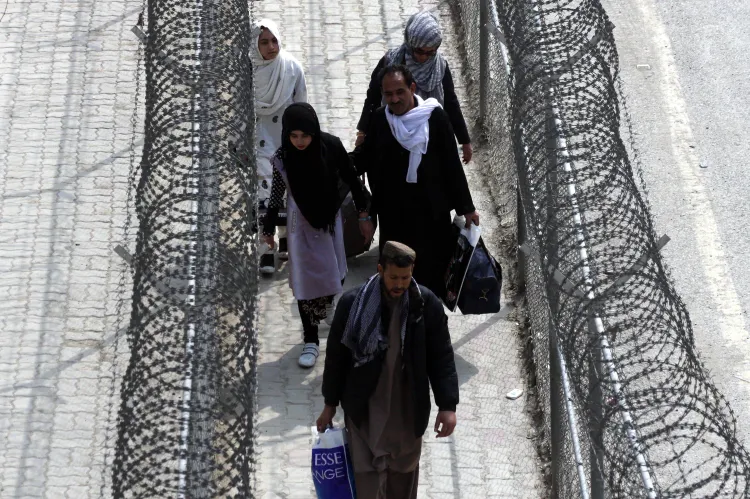Why is Pakistan Detaining Afghan Migrants?

Synopsis
Key Takeaways
- Pakistan has initiated detentions of Afghan migrants with expired permits.
- Overcrowding at border points has become a pressing issue.
- International organizations are advocating for humane treatment of migrants.
- 1.4 million Afghans are at risk of deportation.
- Security concerns are cited as the basis for these actions.
Islamabad, Sep 3 (NationPress) In a significant development, Pakistan has commenced the detention of Afghan migrants whose residency permits have lapsed, despite reports of severe congestion at border crossings such as Torkham, where many Afghans are attempting to exit Pakistan, according to local media sources.
The Interior Ministry of Pakistan has directed law enforcement to proceed with the arrest and deportation of Afghan migrants as their residency permits expired earlier this week. Authorities have mandated daily updates on the detentions of Afghan nationals, as reported by the Afghan news agency Khaama Press.
Police units are actively searching for and apprehending undocumented Afghan migrants, with local law enforcement indicating that operations are currently underway in Rawalpindi, leading to several arrests.
Pakistan is maintaining its strategy to deport around 1.4 million Afghans holding Proof of Registration (PoR) cards, despite repeated appeals from various international organizations to suspend such actions. Additionally, approximately 800,000 Afghans possessing Afghan citizenship cards, who are residing in Pakistan illegally, also risk deportation, according to official statements.
This crackdown on Afghan migrants occurs amidst growing concerns about overcrowding at critical border points. Reports indicate significant congestion at the Torkham border as migrants attempt to leave.
Humanitarian experts have cautioned that mass deportations could expose Afghan families to increased dangers, including economic distress, social instability, and potential exploitation at the border. International agencies are urging both Pakistan and Afghanistan to engage in discussions to ensure the safe and humane treatment of Afghan migrants.
In August, Pakistan's Ministry of Interior announced that the repatriation of Afghan nationals holding Proof of Registration (PoR) cards who do not choose to return voluntarily would begin on September 1.
This resolution was made during a high-level meeting that addressed mounting security concerns and the strain on national resources. The notification specified that the ongoing repatriation process for holders of Afghan Citizen Cards would commence in accordance with prior decisions established by the Interim Framework for the Return Process (IFRP), as reported by The Express Tribune.
Furthermore, the Ministry of Interior has stated its intention to collaborate with relevant international organizations, including the Taliban-led interim government and the United Nations High Commissioner for Refugees (UNHCR), to facilitate the repatriation of Afghan refugees.









